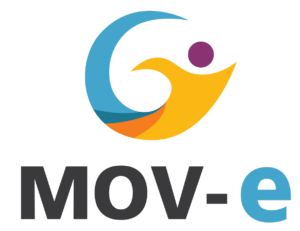Cross cultural aspect
In the case of people with intellectual disabilities, their legal situation may be of additional importance in making decisions, including those related to health and physical activity. The legal situation of adults with intellectual disabilities is often complicated. According to the provisions of Polish civil law, every person after the age of 18 gains the ability to independently manage their fate. Therefore, all decisions regarding the tests, research and activities undertaken must be made directly with your client. Nevertheless, some adults with intellectual disabilities have difficulties in fully understanding the situation, and may have problems communicating their will unambiguously. Therefore, you should take into account the opinions of the guardian/parent in your actions. Most often, caregivers/parents know the person best, communicate with them the easiest and know their needs and preferences best. Their help can be crucial both during the examination and in planning the improvement process. You may also be dealing with a completely incapacitated person. Such a decision may be taken by the court in the case of a person with an intellectual disability who is unable to direct his or her proceedings. However, the basis for incapacitation can only be the good of the person who is to be incapacitated, and the reason for its decision cannot be the need for officials, family, economic situation or inability to communicate with a given person. The main effect of the ruling of total incapacitation is the loss of legal capacity. The powers of the guardian as the legal representative of the ward coincide with the rights of parents with parental responsibility and they must consent to all your activities in the field of diagnosis and therapy. However, even in such a situation, you should always communicate with a person with an intellectual disability in the first place.
In accordance with the Polish law, adult persons with disabilities have full legal capacity of making decisions about themselves. However, in reality they seldom live independently and rely on their parents and other family members while organising their activities in daily life. It means that they need the agreement of their parent to get engaged in e.g. a sport activity. Overprotective parents may limit the persons self-development (Michal’s story).
Supportive parents will offer encouragement and company, increasing the chances of the person’s development (Wiktoria’s story).
Intercultural communication recommendations:
– Tailor your communication style to suit the patient’s needs and preferences. Use simple language, visual aids, and concrete examples to facilitate understanding.
– Take the time to establish trust and rapport with the patient. Create a supportive and non-judgmental environment where they feel comfortable expressing themselves and discussing their goals.
– Practice active listening to understand the patient’s interests, motivations, and concerns related to the selected physical activity/sport. Validate their enthusiasm for the sport and their desire to participate.
– Conduct a thorough assessment of the patient’s physical abilities, coordination, and readiness for the selected physical activity/sport. Consider consulting with other healthcare professionals, such as occupational therapists or special educators, if needed.
– Provide clear and simple instructions on safety measures and techniques for the selected physical activity/sport. Emphasize the importance of following safety guidelines to prevent injuries.
– Develop a structured and gradual training program that allows the patient to build skills and confidence in the selected physical activity/sport progressively. Break down tasks into manageable steps and celebrate achievements along the way.
– Create an inclusive and supportive environment within the sport centre facility. Encourage staff and other participants to be patient, understanding, and respectful towards individuals with disabilities.
– Involve the patient’s family members or caregivers in the planning and support process. Provide guidance and resources to help them understand the benefits and challenges of the selected physical activity/sport for individuals with intellectual disabilities.
– Acknowledge and celebrate the patient’s progress and accomplishments in the selected physical activity/sport. Recognize their effort, perseverance, and determination to pursue their goals despite challenges.
1. What similarities have you noticed in your culture?
2. What differences have you noticed in your culture?
3. What should you pay attention to when caring for a patient with different cultural values?


Leave a Reply
Want to join the discussion?Feel free to contribute!